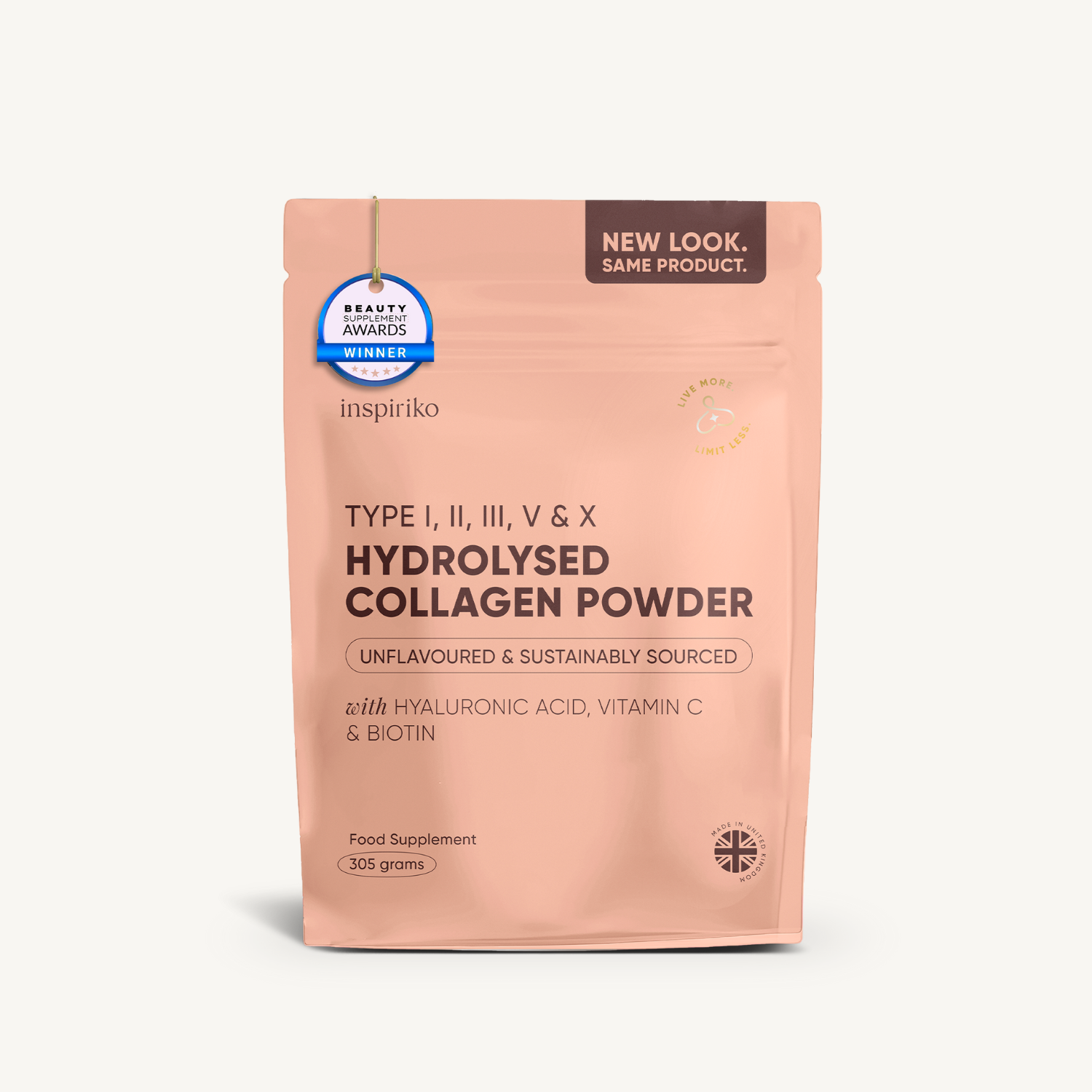When we think about probiotics, most of us immediately associate them with gut health. And while that’s absolutely true, there’s a whole other world where probiotics shine like for our vaginal health. As women over 40, many of us begin to experience subtle (and not-so-subtle) changes in our bodies. Hormonal fluctuations, especially during perimenopause and menopause, don't just affect our moods or metabolism - they can disrupt the delicate ecosystem of our vaginal microbiome. This can lead to uncomfortable symptoms like dryness, irritation, recurrent infections, or a general feeling that something is "off."
But here’s the empowering truth: you can restore balance. You can take control. Probiotics—especially those tailored for women’s health—offer a gentle, natural way to support vaginal flora, strengthen immunity, and even help regulate hormonal shifts that influence vaginal pH and bacteria.
In this article, we’ll explore how these vaginal health probiotics benefit, why certain strains are more effective than others, and how to make them a regular part of your wellness routine—all without pushing specific products. Our goal? To help you feel balanced, vibrant, and fully in tune with your body, no matter your age.
Why Women Should Take Probiotics
As we journey through life—especially into our 40s and beyond—our bodies undergo a series of physiological changes. One of the most profound shifts involves our hormones, particularly oestrogen. This hormone plays a protective role across several systems in our body, and one of its unsung heroes is the vaginal microbiome.
The vaginal environment is home to millions of microbes, with Lactobacillus species being the most dominant and beneficial (1). These friendly bacteria help maintain a slightly acidic pH in the vagina, which is key to keeping harmful bacteria and yeast at bay. But during menopause, as oestrogen levels fall, this balance is disrupted. This can lead to a decline in Lactobacillus levels, making way for issues such as:
-
Increased risk of infections like bacterial vaginosis and thrush
-
Vaginal dryness and discomfort, which can impact intimacy and daily comfort
-
Changes in pH levels, which can upset the natural microbial balance
-
Urinary tract issues, including recurrent UTIs, due to the interconnected nature of urinary and vaginal health
This is where vaginal probiotics come in. Taking the right strains of probiotics can help replenish the beneficial bacteria in your vaginal tract, restoring balance and protecting against discomfort. Women's probiotics also support your immune system, improve your body’s inflammatory response, and help maintain healthy urinary and digestive functions—all of which become increasingly important as we age.

When Should You Take Probiotics for Vaginal Health?
Timing is everything—especially when it comes to nurturing your vaginal microbiome. While incorporating probiotics for vaginal health into your daily routine can offer long-term support, certain moments in life call for extra reinforcement. For example, during postmenopause. As oestrogen levels drop, the tissues of the urogenital tract become thinner, drier, and more prone to irritation (2). This, combined with a naturally weakened immune response, creates a perfect storm for recurring urinary tract infections (UTIs). And it’s a storm many women silently endure.
In fact, studies show that postmenopausal women are at increased risk of recurrent UTIs due to a decline in Lactobacillus dominance and urogenital atrophy, both of which are tightly linked to hormone loss and microbiome disruption (3). Probiotics can play a critical role here. Taking them after a course of antibiotics, which often wipe out both good and bad bacteria, is one key moment. Some women also find it beneficial to take probiotics before or after intimacy, especially if they’re prone to infections. Ultimately, the best time to take probiotics is consistently—because maintaining microbial balance is easier than trying to restore it after things have gone off track.
💬 Tip: Set a reminder and make vaginal probiotics part of your daily routine – staying consistent really helps!

Related Articles:
Vaginal Atrophy: Signs, Symptoms, and Treatments
Gut Health & Menopause: How to Rebalance Your Microbiome Naturally
7 must-have foods during menopause
How to Select the Best Probiotics for Vaginal Health?
With so many probiotic options out there, it can feel like you need a degree in microbiology just to pick the right one. But it doesn't have to be complicated. When selecting supplements for vaginal health, here’s what to look for:
-
Proven Strains for Vaginal Health: Choose probiotics that contain Lactobacillus rhamnosus GR-1 and Lactobacillus reuteri RC-14. These strains are well-researched for their ability to colonise the vaginal tract and maintain a healthy pH balance—crucial for keeping infections at bay.
-
Prebiotics for Extra Support: Look for formulations that also include prebiotics, which act as food for the good bacteria. This helps them thrive and support your vaginal (and gut) microbiome more effectively.
-
Clean Formulas Without Fillers: Opt for supplements that are free from unnecessary additives or allergens, especially if you’re prone to sensitivities.
-
Consistency Matters: Taking your probiotics daily—ideally at the same time each day—can make a big difference in maintaining balance.
And don’t forget: Vaginal health and urinary health are intimately connected. That’s why it’s worth looking beyond probiotics alone.
Improve Your Urinary and Vaginal Health with Inspiriko - A Smart Addition to Your Routine
While not a traditional probiotic, Inspiriko’s D-Mannose Complex offers triple-action support for your urinary tract—an area closely linked to vaginal wellness. Here's why we love it:
-
D-Mannose: Helps flush out harmful bacteria that can cause recurrent UTI.
-
Cranberry Extract: Prevents bacteria from sticking to the urinary tract walls
-
Vitamin C: Supports a healthy immune response and maintains optimal urinary pH
If you’re someone who struggles with frequent UTIs or discomfort after intimacy, this vaginal health supplement can be a powerful ally in keeping both your urinary and vaginal microbiomes in harmony.
This probiotic for vaginal health is available in both capsule and powder form.
Lifestyle & Diet Tips for a Healthy Vaginal Microbiome
While probiotics and supplements for vaginal health provide targeted support, your daily habits play a massive role in keeping your vaginal microbiome balanced and thriving. Here’s how to create an environment that supports your intimate health:
1. Eat More Plant-Based, Fibre-Rich Foods: A diverse diet full of vegetables, fruits, whole grains, and legumes helps feed your good bacteria (4). Aim for colour on your plate - it’s not just pretty, it’s protective.
2. Incorporate Natural Fermented Foods: Add yoghurt, kefir, sauerkraut, or kimchi to your meals. These probiotic-rich foods boost overall microbial diversity.
3. Stay Hydrated: Drinking enough water supports mucous membrane health and helps flush out toxins and unwanted bacteria from your system.
4. Wear Breathable Underwear: Cotton is your best friend - it's breathable and moisture-wicking, helping to prevent bacterial overgrowth (5).
5. Avoid Harsh Soaps and Douches: The vagina is self-cleaning (6). Washing with plain water or gentle, pH-balanced products is all you need. Overwashing can strip away beneficial bacteria and disrupt your pH.
6. Prioritise Sleep and Stress Management: Your microbiome loves a calm, rested body. Chronic stress and poor sleep can throw off hormonal and microbial balance, so don’t underestimate the basics.
Want to know more? Sleep Hygiene Strategies That Work!
As we navigate the changes that come with age, supporting our vaginal health becomes a powerful way to honour and care for ourselves. Whether you're looking to prevent recurrent infections, ease discomfort, or simply maintain your body’s natural rhythm, the right probiotics - and a lifestyle that nurtures your microbiome - can make all the difference.
By choosing strains that support vaginal and urinary health, integrating smart supplements like D-Mannose Complex, and making small, sustainable shifts in your daily habits, you're not just managing symptoms - you're reclaiming balance and vitality from the inside out.
FAQs
1. Can I take probiotics during my period?
2. Do vaginal probiotics work better than oral ones?
3. Can probiotics help with vaginal dryness?
4. Are there any side effects to taking vaginal probiotics?
Related Products
References for the blog
-
Linhares, I.M., Summers, P.R., Larsen, B., Giraldo, P.C. and Witkin, S.S., 2011. Contemporary perspectives on vaginal pH and lactobacilli. American Journal of Obstetrics and Gynecology, 204(2), pp.120.e1–120.e5.
https://doi.org/10.1016/j.ajog.2010.07.010 -
Muhleisen, A.L. and Herbst-Kralovetz, M.M., 2016. Menopause and the vaginal microbiome. Maturitas, 91, pp.42–50.
https://doi.org/10.1016/j.maturitas.2016.05.015 -
Mei, Z. and Li, D., 2022. The role of probiotics in vaginal health. Frontiers in Cellular and Infection Microbiology, 12, p.963868.
https://doi.org/10.3389/fcimb.2022.963868 -
Emslie, C., 2005. Women, men and coronary heart disease: a review of the qualitative literature. Journal of Advanced Nursing, 51(4), pp.382–395.
https://doi.org/10.1111/j.1365-2648.2005.03509.x -
Wu, Y., Liu, P., Liao, Q., Jin, T., Wu, Z., Wang, G., Wang, H. and Chu, P.K., 2023. Cotton fibers with a lactic acid-like surface for re-establishment of protective Lactobacillus microbiota by selectively inhibiting vaginal pathogens. Advanced Healthcare Materials, 13(5), p.2302736.
https://doi.org/10.1002/adhm.202302736 -
Jenkins, A.L., Crann, S.E., Money, D.M. and O’Doherty, K.C., 2018. “Clean and fresh”: Understanding women’s use of vaginal hygiene products. Sex Roles, 78(9–10), pp.697–709.
https://doi.org/10.1007/s11199-017-0824-







